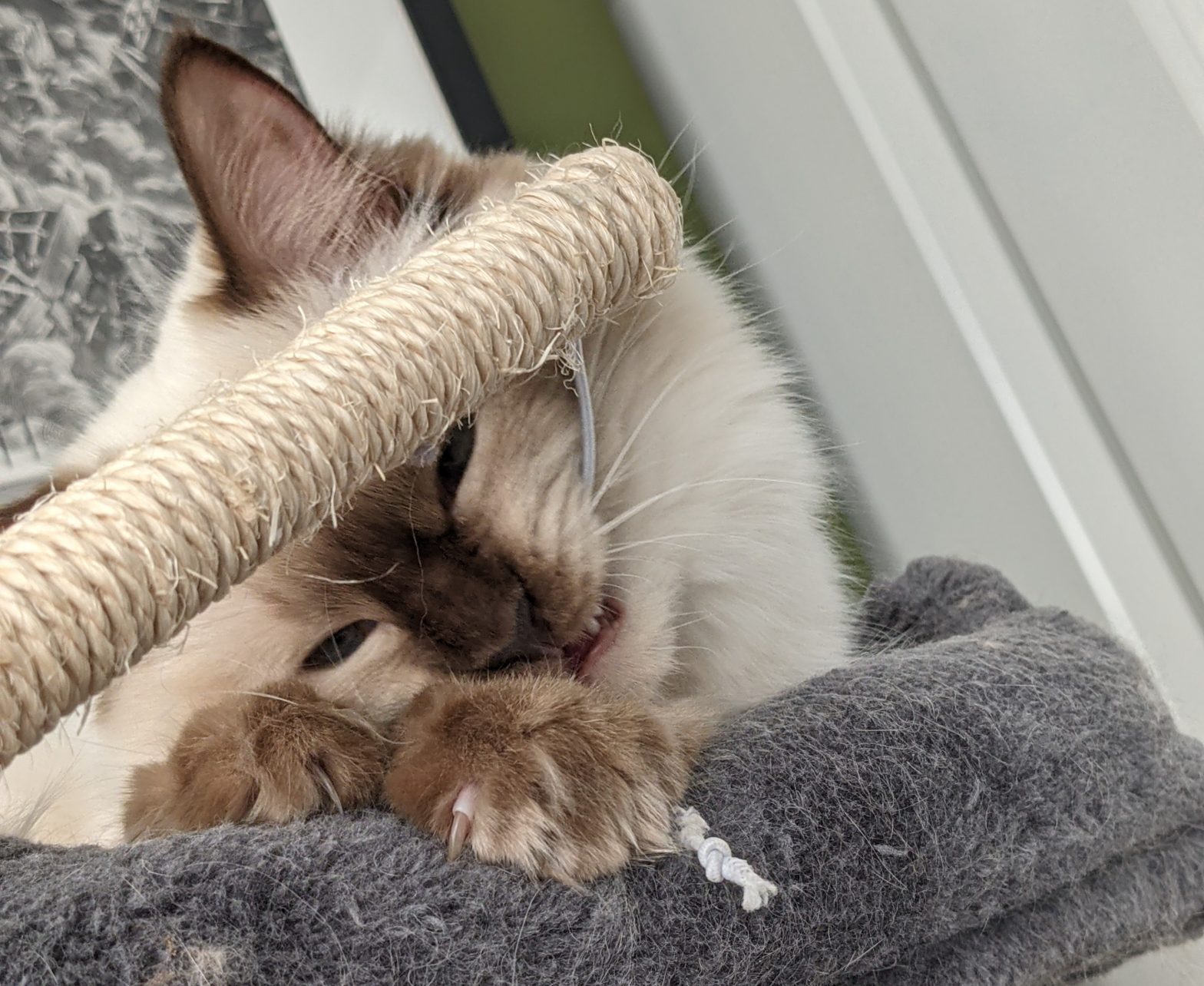Nipping and biting
There is a clear difference between the playful nip, which can indicate hunger, happiness, or a desire to play, and a warning shot that may be quickly followed up with a more aggressive bite.
A friendly nip can be recognised because there is clearly no intention to hurt, and it is often combined with other positive body language signs such as purring, holding the tail vertically, rubbing their face and chin against the person or nearby objects, arching of the back when stroked, and positioning their whiskers to face forwards. This type of behaviour is clearly friendly but smaller kittens may accidentally cause more damage than they intend.
On the other hand, a light nip combined with more aggressive body language by the cat such as a swishing or thumping tail, ears and whiskers flattened back, or lashing out with a paw generally indicates that the cat is not a mood to be bothered. Depending on the cat, if you keep harassing when they display these signs, they may well give you a more insistent nip.
Even under these conditions, it is very rare for a cat to actually bite a human. They seem to prefer to place their teeth against skin in a warning and then make good their escape. However, it is very unwise to corner a cat who is displaying aggressive behaviour as they can certainly give you a nasty scratch or two.
Licking
Cats can also display their affection by licking. If two cats know each other very well they will occasionally groom each other, particularly by licking the other’s head, ears, and neck (which are harder to get to for a cat doing their own grooming). Although this behaviour is generally very friendly, it can sometimes degenerate into a play fight even if the cat who is being groomed is not really in the mood for any high jinks.
Cats will occasionally lick humans to groom them. Cats may also lick fingers and hands if they smell something interesting or you’ve recently been handling food. If your cat does like to lick your hands, do remember to wash your hands afterwards as the saliva of a cat contains chemicals which act as an effective deodorant (to mask their smell for hunting) but are not so good when mixed with human food.
Be careful because if your cat or kitten licks an open wound or too close to your eye, you may develop cat scratch fever.
